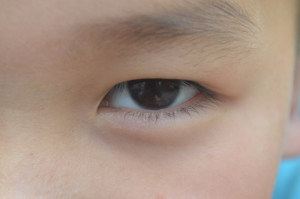A postdoctoral fellow from the UH Cullen College’s department of biomedical engineering was recently awarded a Career Starter grant from the Knights Templar Eye Foundation. Rahel Zulliger received the $65,000 award to continue her research aimed at giving the gift of sight to young children with vision loss caused by inherited diseases and disorders.
Zulliger, who works closely with biomedical engineering professor Muna Naash, is dedicated to improving treatments for children who experience loss of vision due to deterioration of the cells in their retinas. Several gene mutations have been linked to early onset retinal deterioration, and many researchers are currently seeking innovative treatments targeting these genes.
Gene therapy – a procedure in which a patient’s cells are genetically modified in order to correct an inherited disease or disorder – has shown promising results in the treatment of many inherited eye diseases. After researchers have identified the gene mutation responsible for the loss of vision, they clone a healthy version of the problem gene and load it into a vehicle called a vector. The vector then travels to the retinal cells and delivers the therapeutic genetic material into the cell’s nucleus. Once there, the healthy genetic material is integrated into the cell’s DNA, thereby correcting the defective gene.
Zulliger is looking specifically at non-viral vectors, which are made up of naked DNA and are less likely to cause negative immune responses in patients than viral vectors. Viral vectors employ viruses to ferry genetic material to defective or mutated gene.
With the addition of expression-enhancing DNA elements from different sources, Zulliger is trying to increase the protein expression to a level significant for the rescue of photoreceptor cells in the retina. Her project focuses on GC1, a retina-specific protein that is often affected in children with Leber’s congenital amaurosis (LCA), a disease characterized by rapid vision loss that can lead to complete blindness in the first decade of life.
“The improved gene therapy vectors will make a contribution to the growing field of gene therapy and hopefully lead into successful treatment of the affected patients,” Zulliger said.
The Knights Templar Eye Foundation provides support for research and education for vision loss, especially in children and young adolescents. The Career Starter grant is designed to help young scientists to develop their research independently.
